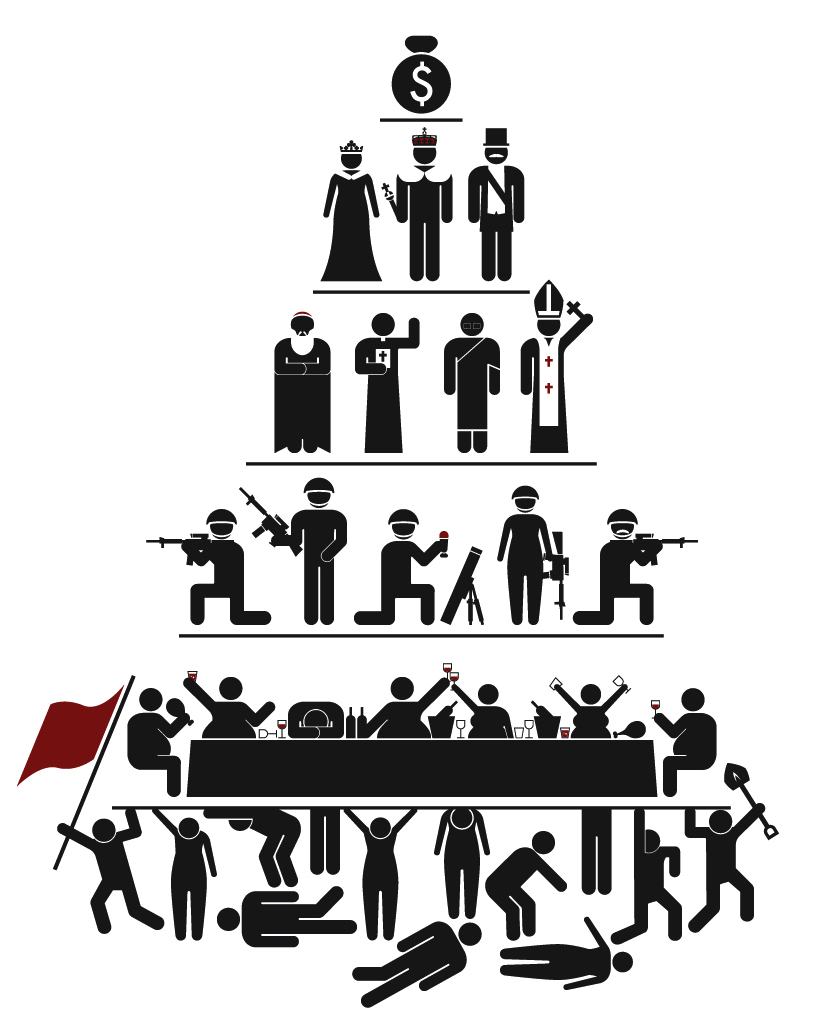
Shyaonti Talwar
ENGLISH LANGUAGE AND LITERATURE, PEDAGOGY,
CRITICAL THINKING, CREATIVITY AND PERFORMING ARTS.
"Another world is not only possible.
She is on her way.
On a quiet day, I can hear her breathing."
- Arundhati Roy

ENGLISH LANGUAGE AND LITERATURE, PEDAGOGY,
CRITICAL THINKING, CREATIVITY AND PERFORMING ARTS.
"Another world is not only possible.
She is on her way.
On a quiet day, I can hear her breathing."
- Arundhati Roy
By Dr. Shyaonti Talwar

How the powerful become powerful in the first place and continue to be so: an observation through Antonio Gramsci’s theory of Hegemony
Gramsci, one of the neo-Marxists revived and even modified the idea of Hegemony. He understood hegemony as and associated it more with leading than with ruling. Gramsci while analysing Marx wondered how, if it was so obvious that the proletariat was exploited by the ruling class and this, as posited and argued by Marx, by and large had been the phenomenon and practice of any society and its economy, why in that case did the proletariat not revolt? Why did they not stand up against their oppression? It was obviously because they were made to understand and internalise that this was natural. Earlier mechanisms could have been different but in the age in which Gramsci was writing, he realised that media with its manufactured truths would largely reinforce stratification and naturalise exploitation.
The ruling class realises that in order to continue ruling, they have to spin a narrative that will maintain the status-quo, that will not disturb the existing favourable order of things. This dominant ideology is largely propagated by cultural practices. Gramsci was of the opinion that for any dominant ideology to be floated and reinforced and to work in favour of the ruling class, three things need to be won. The public intellectual, the education system and the philosophy which drives and defines any society. Cultural domination can be ensured by using these three pivotal mechanisms to promote and disseminate dominant ideology and create a value system which seems most natural and even commonsensical.
Gramsci did not attribute this strategy only to the capitalist system. He attributed it to capitalism, communism, any ‘-ism’ – in fact any order or system that was in power and governed a society. He did not in any way suggest that capitalism ought to be replaced by communism or socialism and he absolutely loathed and was vehemently critical of leaders like Stalin who he regarded as political opportunists. He was committed to the cause of challenging and destabilising the ruling order, ruling ideology, the status-quo to prevent political absolutism. A stabilisation of order would mean a rigidification of the systems of oppression and exploitation. A constant questioning and critiquing of systems would keep a check on it and enable an order to incorporate the interests of the masses.
Therefore, whatever ideology or value system the ruling class designs and propagates with an intention of naturalising it, is what becomes the order of the day and acquires a hegemonical status. Certain values, ideologies, beliefs, constructs and institutions can become hegemonical while marginalising others. The very word hegemony implies one group’s dominance and another’s subordination. There could be myriads of pretexts such as race, caste, religion, gender, ethnic origin, sexuality and class. Certain cultural systems and practices are made to seem natural through a favourable and repeated projection and circulation of those ideas. People tend to build solidarities around ideas and gravitate towards each other to form a group. They start associating strongly with that idea and the idea starts defining and determining their actions, interactions and then leads on to formulate an all-pervasive system and thus becomes an ideology which has a political objective. Certain ideologies that are favourable to the ruling section of people or those who are in a privileged position are then popularised. We have all heard of terms like racism, casteism, patriarchy, sexism, apartheid, Brahminism, etc. which stand to critically represent different dominant ideologies floated by the powerful/ruling/privileged class that have always ruled the day.
An intellectual engagement with these ideologies aims at an understanding and challenging of them. Feminism which was a resistance against male domination and patriarchal practices has also been accused of being hegemonic in that it remained till, very recent times, a largely middle class white woman’s domain which gave visibility and expression to the oppressive conditions of white women. In that sense it was exclusive and disregarded the myriads of exploitative circumstances faced by women of colour, black women and women in countries that were formerly colonies. As a result it came under criticism and led to the emergence of various kinds of feminism(s) such as black feminism, multicultural feminism, post-colonial feminism, Islamic feminism and so on.
Thus it is evident that ideologies have to be constantly questioned as they impact our individual and collective actions and interactions and determine the trajectory of a society. Hegemonic ideologies need to be contested because they represent the status quo and challenging the status quo is in the interest of preventing an order from getting fossilised. The dialectic of power is such that there will always be a persistent effort towards discrimination and stratification through hegemonisation and otherisation; however what can be prevented, through constant critiquing and questioning is the cementing of structures and permanent compartmentalisation of groups into privileged and marginalised, visible and invisible, powerful and subordinate.
Contact Me : shytalwar2@gmail.com | tshyaonti@gmail.com |  LinkedIn | Academia.eu
LinkedIn | Academia.eu